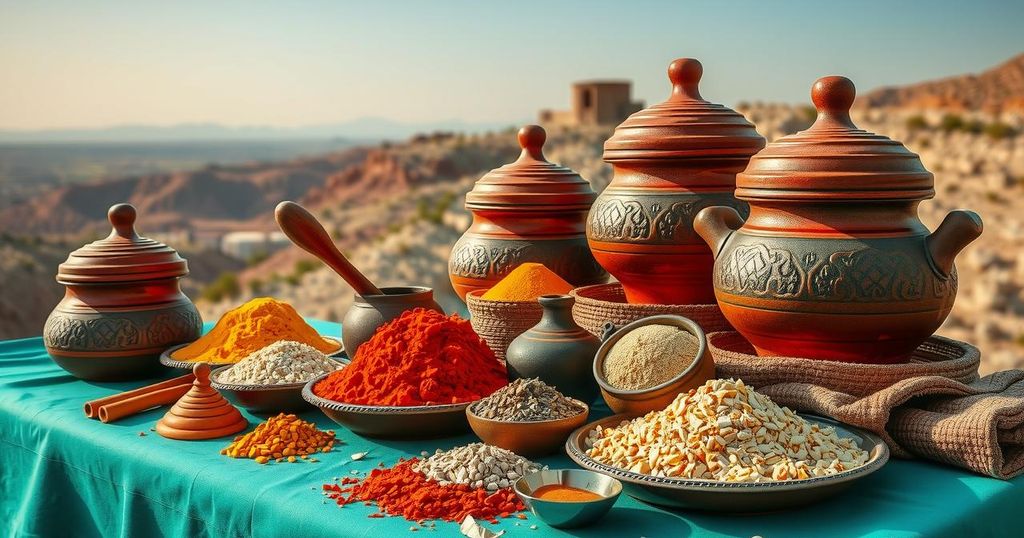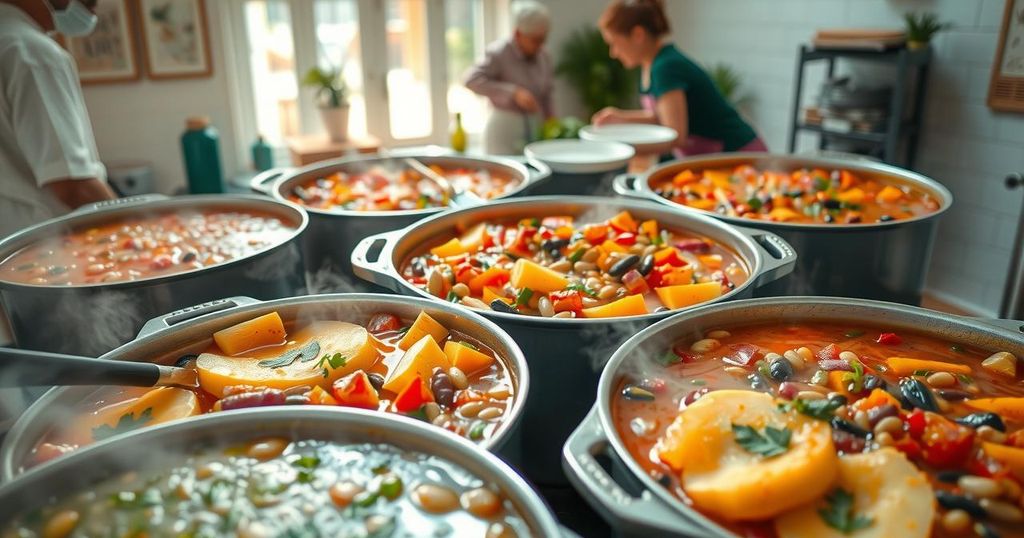Celebrating Harissa: The Culinary Heart of Tunisia’s Nabeul Festival
The harissa festival in Nabeul, Tunisia, features the popular spicy condiment made from red peppers, garlic, and spices. The event draws enthusiasts to celebrate this staple, reinforcing its cultural significance. Attendees engage in tasting and purchasing harissa while enjoying local cuisine, fostering a sense of community and appreciation for Tunisian culinary traditions.
In northeastern Tunisia, particularly in Nabeul, the locals have embraced the bright red peppers which are skillfully transformed into harissa, a spicy spread made with garlic, vinegar, and spices. This beloved condiment has gained significance as a quintessential addition to meals across Tunisia and serves as a symbol of national identity. Each January, the city hosts a harissa festival, drawing enthusiasts from all over the country and around the globe to celebrate this culinary treasure.
The festival acts as a vibrant platform to showcase harissa, allowing attendees to explore its diverse flavors and culinary applications. In addition to tasting and purchasing various types of harissa, festival-goers can indulge in local delicacies that highlight the condiment’s versatility. The event also fosters community spirit, uniting individuals over a shared passion for this iconic Tunisian dish.
The celebration of harissa at the festival not only emphasizes its integral role in Tunisian culture but also promotes local artisans who produce this fiery condiment. Attendees share experiences, swap recipes, and appreciate the artistry involved in preparing harissa. The festival represents a culinary pilgrimage for many, reinforcing the love and pride Tunisians have for their traditional foods.
The harissa festival in Nabeul serves as a significant cultural event that celebrates Tunisia’s national condiment, harissa. Through communal participation, the festival highlights the culinary heritage and craftsmanship involved in producing this beloved spicy spread. The festival not only nurtures local traditions but also invites international appreciation of Tunisia’s rich culinary landscape.
Original Source: www.salemnews.com




Post Comment